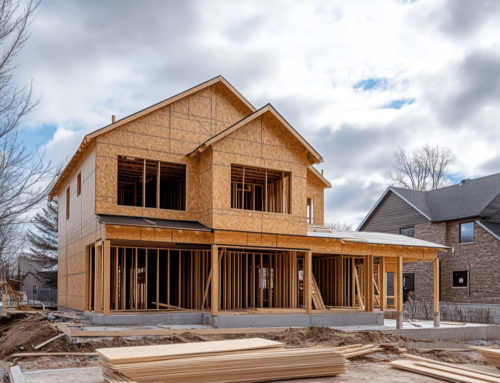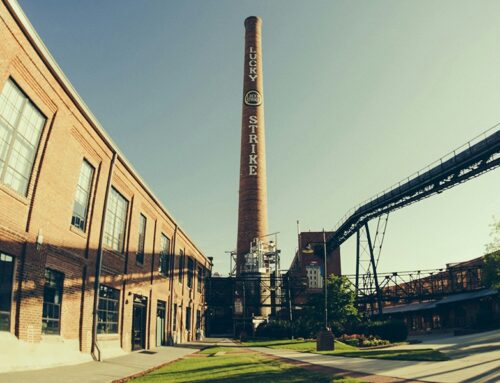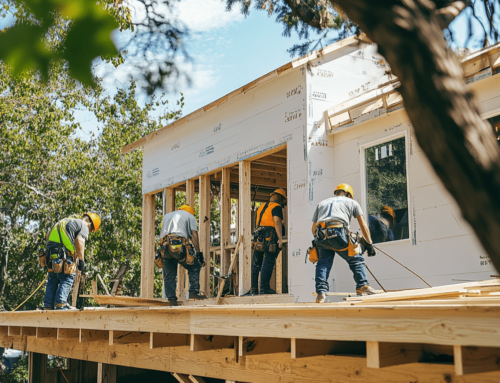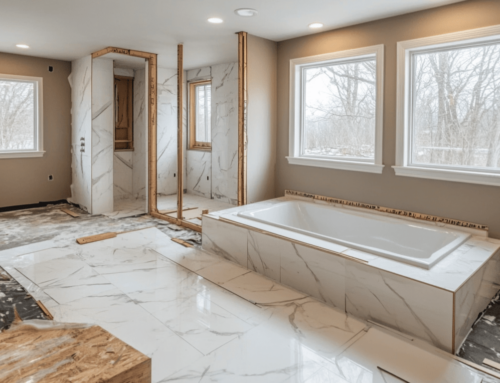Accessory dwelling units (ADUs) have surged in popularity in many parts of the country because of the many opportunities they offer. Homeowners use their ADUs – also commonly-known as tiny houses, granny flats, in-law suites, and more – for a wide range of purposes. These include everything from building a home office or studio space to simply adding more living space to their property.
However, ADUs aren’t just a nice feature to have, they can also be a wise investment in many cases. Adding a secondary dwelling to your property can generate a significant return on investment (ROI) in more ways than one, along with having other benefits. In the following article, we take a look at the ways in which putting your money into an ADU can be a smart financial move.
Benefits of Investing in an ADU
As an investment, ADUs offer several unique advantages. Secondary dwellings can provide a strong ROI in many cases, but they can also provide benefits that aren’t strictly financial. We explore the details of these benefits in the section below.
You Can Generate Rental Income
Technically, a structure must provide a completely independent living – or dwelling – space to be considered an ADU. This means spending money on things such as a bathroom and separate entrance. But it also means that, as long as your ADU meets local codes, you can use your structure as a rental property to generate revenue immediately.
Depending on the rules and regulations for your city and your neighborhood, you can use your ADU as a long-term rental or a short-term rental. Long-term rentals offer more stability but come with more requirements and have a lower earnings ceiling than short-term rentals. However, while short-term rentals have the potential to bring in more revenue, that revenue may not be as consistent or dependable.
It Tends To Be Cheaper Than Buying a Second Property
As a homeowner, you know how exhausting and expensive the property-buying experience can be. One of the biggest financial advantages of building an ADU as an investment is that you build on property you already own – meaning you only need to spend money on the actual build and not on more land or an entirely separate home.
That means that an ADU is almost always a less-expensive option for a rental property than buying an additional property. Depending on the size and design of your ADU, the rental rates can be comparable to independent properties. That means you have a good chance of getting a similar return on a smaller investment.
You can use our free ADU cost calculator tool to get a general idea of what you might need to invest to build an ADU on your property. This tool allows you see how different options such as your floor plan, material choices, and added amenities affect the price of your build before getting an official estimate.
An ADU Can Add Significant Value to Your Property
While a rental property can generate revenue for you in the short-term, building an ADU can also provide a strong ROI in the long term. Like any addition to your property, adding functional space is likely to add to its overall value.
In addition to that value, because ADUs offer so much functionality and potential for income, having one on your property can provide a reason to up the price of your home if you decide to sell. They can also make your property more attractive to smart homebuyers and investors who understand the value an ADU can provide.
You Can Run Your Business From Your ADU
One of the bigger benefits of investing in an ADU isn’t in the money you can earn from it, but the money you can save with it. If you have a business that requires a physical location, you can locate that business at your structure. In most cases, your ADU can have a separate address from your main home, giving you a unique business address.
Doing so means you won’t have to pay for commercial real estate, which can often be one of the biggest expenses for small businesses – especially in high cost-of-living areas. Since you own the space, you also don’t have to worry about rent increases or the property being sold to someone who can force you to move out at your own expense.
Putting your business in an ADU also cuts down on the amount of time you spend traveling between your home and your business. That means you’ll also save on smaller expenses such as gas and wear and tear on your vehicle.
You Can Add Housing and Increase Density in Your Community
The benefits of investing in an ADU extend beyond simple financial gains. According to data from the U.S. Bureau of Labor Statistics (BLS), the consumer price index for rent has increased by nearly 53% over the last decade in the U.S. While there are other factors at play, some of that increase is due to housing shortages.
These increases have made life difficult for many people around the country. One of the most popular solutions is to increase density in cities to add housing stock close to where job opportunities are. However, many places have zoning restrictions that don’t allow developers to build apartments and other high-density dwellings in these areas.
By building an ADU, you are adding to the housing stock in your community without taking up more property. It’s not enough to solve the affordability problems in many places in the country, but it’s also not contributing to the problem as much as buying more property would.
You Can Provide a Living Space For Family and Friends Who May Need It
In an uncertain economy, many people are finding it harder to make ends meet. With housing being one of the biggest costs people face, providing a place for aging parents or adult children who may be struggling can help them live more comfortably and get back on their feet.
By building an ADU, you can offer a living space that allows family members and other loved ones a place to live independently while still staying close to you. This allows you to help them when they need it, or vice-versa. Providing for loved ones in need is another benefit that isn’t simply financial.

Is an ADU a Good Investment? What To Consider
An ADU can be a good investment for many who have the option to build one. But that’s not true in every case. There are several things to think about to decide whether an in-law suite is a smart investment for you and the money you can potentially earn from building one.
Can You Actually Build an ADU on Your Property?
Local restrictions and regulations around building secondary dwellings have started to loosen in most parts of the country. However, you still may not be able to build an ADU on your property if your city or town still has regulations against doing so. If your home is located in a neighborhood governed by an HOA, you’ll also need to check the bylaws. Some HOAs forbid ADUs entirely or dictate their size, design, and location.
How You Plan To Use Your ADU
Much of the ROI you can earn from an ADU depends on how you use it. If you are only building a tiny home for personal purposes, you won’t generate any income in the short-term.
However, if you plan to use your ADU as a rental unit, you can research average rents and occupancy rates in your area to get a general idea of what you might earn. If you are thinking of using your ADU as a location for your business, you can look at commercial property rates to see how much you would be spending and therefore how much you can save by putting your company in your own space.
The True Cost of Building an ADU
We offer a free build cost calculator to help you get a sense of what your ADU construction costs might be. You can select different options such as size, number of rooms, finishes, and more to get a cost range for your build. We can provide a more precise estimate after a free consultation.
However, it’s important to remember that construction costs aren’t the only costs involved. If you need to finance your tiny house, you’ll also have to factor in the total cost of the loan, including interest. And since building a secondary dwelling adds to your property value, this may increase your tax liability – another thing to consider.
The Effect on Your Property Value
You should also consider the long-term ROI of adding an ADU to your property. This can often be quite substantial, since you’re not only adding square footage of living space to your property but also a space that can be used to generate revenue.
However, the math on exactly how much an ADU can increase your property value is complicated and depends on market factors that change over time. Our experts can provide you with more information during a consultation, but you may also want to speak to real estate experts in your area to learn more about what a secondary dwelling can and can’t add to your property value.
An ADU Can Be a Strong Investment When Done Right
As you can see, there are many ways in which investing in an ADU on your property can be a wise financial move. However, your best chance at generating a high ROI is to make sure that the structure you build is built right.
As ADU builders who specialize in these structures, our team is experienced at helping people navigate the process. During a free consultation, we can answer whatever questions you might have about building an ADU – whether you plan to build it as an investment or not. We can also help you find financing for your project if you decide to move forward and take care of many of the other tedious steps of the process. Click the button below to set up a consultation.






Leave A Comment